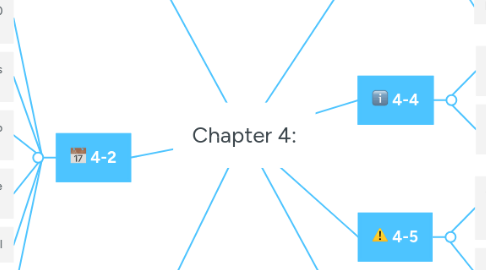Chapter 4:
by Leilani Spaulding


1. 4-1
1.1. dilation: when all sides get bigger
1.2. Isometry: transfiguration that does not change.
2. 4-4
2.1. congruent polygons: polygons that are equal
2.2. corresponding sides: sides on a polygon that are the same
3. 4-2
3.1. acute triangle: all angles are less than 90 degrees
3.1.1. Project specifications
3.1.2. End User requirements
3.1.3. Action points sign-off
3.2. obtuse triangle: a triangle with all angles that equal more than 9- degrees
3.3. scalene triangle: a triangle with no congruent sides
3.4. isoscelese: at least two of the sides of the triangle are equal.
3.5. Equalateral Triangle: all angles are equal
3.5.1. Top Priorities
3.5.2. Medium Priorities
3.5.3. Low Priorities
3.6. right angle: a triangle with one angle that equals 90 degree.
3.6.1. Top Priorities
3.6.2. Medium Priorities
3.6.3. Low Priorities

